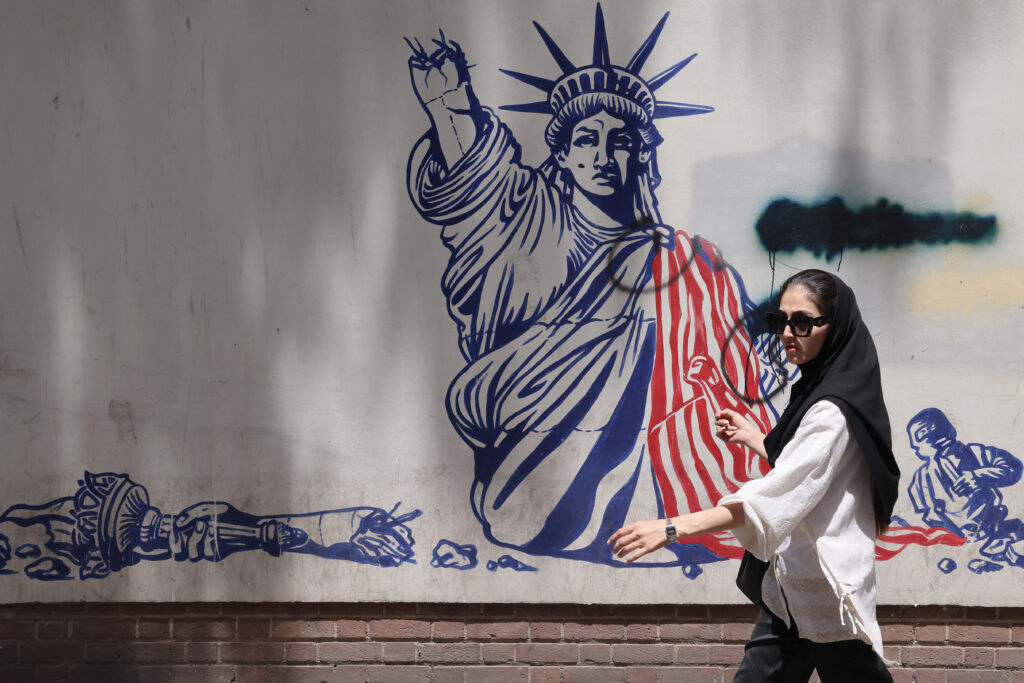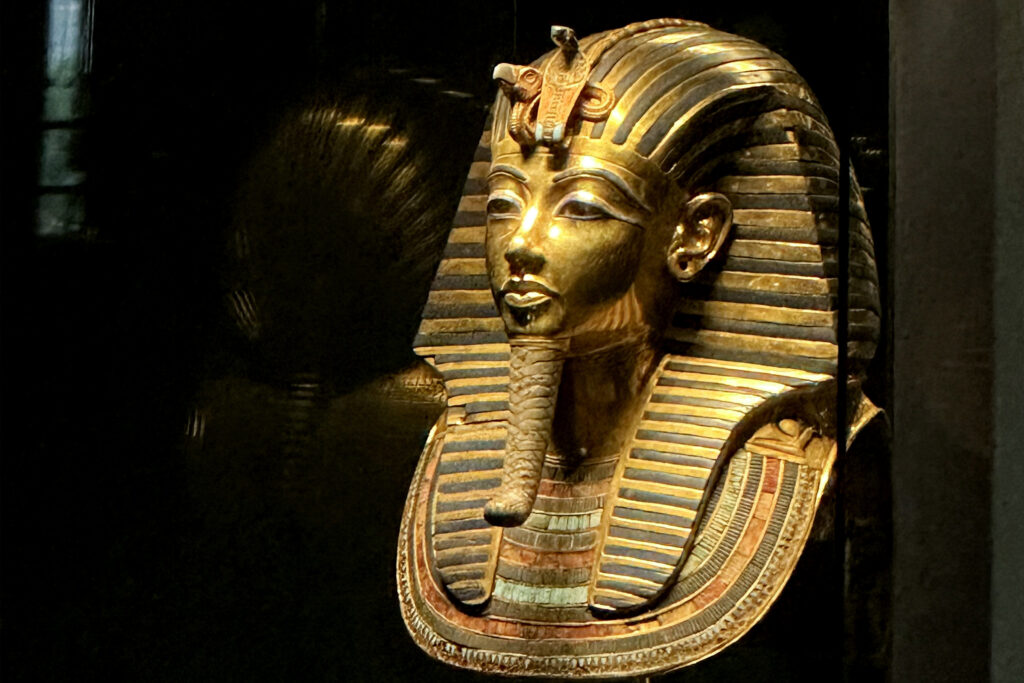AFP Asia Business
Trump calls on Israel not to strike as Iran defiant before talks
US President Donald Trump called Thursday on Israel not to attack Iran, saying a deal on its nuclear program remained close, but Tehran defiantly vowed to increase its output of enriched uranium ahead of new talks.Trump acknowledged that an Israeli strike on Iran “may very well happen,” although he stopped short of calling a strike imminent, and said the risk of “massive conflict” led the United States to draw down staff in the region.”We are fairly close to a pretty good agreement,” Trump told reporters.Asked about his discussions with Israeli Prime Minister Benjamin Netanyahu, Trump said: “I don’t want them going in, because I think it would blow it.”Trump quickly added: “Might help it actually, but it also could blow it.”Trump’s Middle East pointman Steve Witkoff is set to hold a sixth round of talks with Iran on Sunday in Oman, which has mediated.Trump again described himself as a man of peace.”I’d love to avoid the conflict. Iran’s going to have to negotiate a little bit tougher — meaning they’re going to have to give us some things that they’re not willing to give us right now,” he said.- US troops in crosshairs -Iran has ramped up rhetorical pressure before the talks, including with a threat to strike American bases in the region if the negotiations break down and conflict erupts.”If the talks fail, the risk of military escalation becomes much more immediate,” said Hamidreza Azizi, a visiting fellow at the German Institute for International and Security Affairs.The United States on Wednesday said it was reducing embassy staff in Iraq — long a zone of proxy conflict with Iran.Israel, which counts on US military and diplomatic support, sees the cleric-run state in Tehran as an existential threat and hit Iranian air defenses last year.Netanyahu has vowed less restraint since the unprecedented October 7, 2023 attack on Israel by Tehran-backed Hamas, which triggered the massive Israeli offensive in Gaza.Israel again called for global action after the UN’s International Atomic Energy Agency (IAEA) accused Iran of non-compliance with its obligations. The United States and other Western countries, along with Israel, have repeatedly accused Iran of seeking a nuclear weapon, which it has repeatedly denied.The IAEA’s board of governors adopted a resolution condemning Iran’s “non-compliance” with its nuclear obligations under the Non-Proliferation Treaty (NPT), carried by 19 votes in favour, out of 35 in total, diplomats said.The resolution could lay the groundwork for European countries to invoke a “snapback” mechanism, which expires in October, that would reinstate UN sanctions eased under a 2015 nuclear deal negotiated by then US president Barack Obama.- Iran says move ‘extremist’ -Iran’s nuclear chief, Mohammad Eslami, slammed the resolution as “extremist” and blamed Israeli influence.Iran, he said, had upheld its commitments under the NPT but rolled back adherence to the 2015 deal after Trump withdrew the United States during his first term as president and imposed sweeping sanctions.”They can’t expect us to fulfill them without them (Western countries) honoring any of their commitments,” Eslami said.In response to the resolution, Iran said it would launch a new enrichment center in a secure location.Iran would also replace “all of these first-generation machines with sixth-generation advanced machines” at the Fordo uranium enrichment plant, said Behrouz Kamalvandi, spokesman of the Atomic Energy Organization of Iran.This means “our production of enriched material will increase significantly,” he added.Eslami said enrichment would begin at the new “invulnerable” site when machines were installed.Iran currently enriches uranium to 60 percent, far above the 3.67-percent limit set in the 2015 deal and close, though still short, of the 90 percent needed for a nuclear warhead.Following Iran’s vow on uranium, the European Union called on it “to show restraint.”Iran’s UN representative Amir Saeid Iravani has said Tehran will consider “proportionate responses” if the snapback mechanism is triggered — including “starting the process of withdrawal” from the NPT.
Trump says Israel should not strike Iran, as nuclear deal ‘close’
US President Donald Trump called Thursday on ally Israel not to strike Iran’s nuclear sites, saying a deal remained close if Tehran compromises.Trump acknowledged that Israeli Prime Minister Benjamin Netanyahu was considering a strike, which he said could spark a “massive conflict” — leading to a US decision to draw down embassy staff in the region.”We are fairly close to a pretty good agreement,” Trump told reporters.Asked about his discussions with Netanyahu, Trump said: “I don’t want them going in, because I think it would blow it.”Trump quickly added: “Might help it actually, but it also could blow it.”Trump’s Middle East pointman Steve Witkoff is set to hold a sixth round of talks on Sunday in Oman with Iran, which defiantly said it would raise output of enriched uranium — the key sticking point in talks.Trump again described himself as a man of peace and said he would prefer a negotiated settlement with Iran.”I’d love to avoid the conflict. Iran’s going to have to negotiate a little bit tougher — meaning they’re going to have to give us some things that they’re not willing to give us right now,” he said.On whether Israel could attack Iran, Trump said: “I don’t want to say imminent, but it looks like it’s something that could very well happen.”
King Tut gold mask to leave Cairo museum after nearly 100 years
After nearly a century in the Egyptian Museum in Cairo, King Tutankhamun’s iconic gold mask and remaining treasures are set to move to the new Grand Egyptian Museum near the Giza Pyramids.Visitors have just days left to see the boy king’s world-famous gold funerary mask before it joins more than 5,000 artefacts from his tomb at the GEM, a $1-billion megaproject opening on July 3.”Only 26 objects from the Tutankhamun collection, including the golden mask and two coffins, remain here in Tahrir,” said museum director Ali Abdel Halim.”All are set to be moved soon,” he told AFP, without confirming a specific date for the transfer.The government has yet to officially announce when or how the last artefacts will be relocated.Still on display are the innermost gold coffin, a gilded coffin, a gold dagger, cosmetic box, miniature coffins, royal diadem and pectorals.Tutankhamun’s treasures, registered at the Egyptian Museum on Cairo’s Tahrir square in 1934, have long been its crown jewels.But the neoclassical building — with faded cases, no climate control and ageing infrastructure — now contrasts with the high-tech GEM.Once open, the GEM is believed to be the largest in the world devoted to a single civilisation, housing more than 100,000 artefacts — with over half on public display.In a dedicated wing, most of King Tut’s treasures will be exhibited together for the first time in history since British archeologist Howard Carter discovered the young pharaoh’s intact tomb in 1922.His mummy will remain in its original resting place in Luxor’s Valley of the Kings as it is “a vital part of the archeological site”, Egyptian officials have said.A virtual replica, however, will be displayed at the GEM using virtual reality technology.The Egyptian Museum in Tahrir, long the historic heart of Egyptology, has lost in 2021 other star exhibits: 22 royal mummies including Ramses II and Queen Hatshepsut that were relocated in a widely watched state procession to the National Museum of Egyptian Civilization in Old Cairo.Still, it is home to around 170,000 artefacts, according to the museum director, including treasures from Yuya and Thuya – Tutankhamun’s ancestors — and items from ancient Tanis, such as the golden funerary mask of King Amenemope.A total of 32,000 artefacts have already been relocated from storage and display halls at the Tahrir museum to the GEM.The museum’s director said the space left behind by Tutankhamun’s collection will eventually be filled by a new exhibition “on par with the significance of Tut’s treasures”.
Iran defies US on enrichment ahead of nuclear talks
Iran vowed Thursday to significantly increase its enriched uranium output in defiance of US demands, ahead of a round of nuclear talks overshadowed by fears of an imminent Israeli attack.The announcement came after the UN’s International Atomic Energy Agency (IAEA) accused Iran of non-compliance with its obligations. Israel said the world must respond “decisively”.The United States and other Western countries, along with Israel, have repeatedly accused Iran of seeking a nuclear weapon, which it has repeatedly denied.Ahead of Sunday’s sixth round of US-Iran talks in Oman, the Islamic republic threatened to strike American bases in the region if the negotiations break down and conflict erupts.”If the talks fail, the risk of military escalation becomes much more immediate,” said Hamidreza Azizi, a visiting fellow at the German Institute for International and Security Affairs.Uranium enrichment is a central dispute, with Iran defending it as a “non-negotiable” right in its pursuit of a civilian nuclear programme, while the United States has called it a “red line”.Iran’s foreign minister and chief negotiator, Abbas Araghchi, said the IAEA’s resolution “adds to the complexity of the discussions”.”We will be in Muscat to defend the rights of the Iranian people,” he said.- ‘Extremist’ -The IAEA’s board of governors adopted a resolution condemning Iran’s “non-compliance” with its nuclear obligations under the Non-Proliferation Treaty (NPT), carried by 19 votes in favour, out of 35 in total, diplomats said.The resolution could lay the groundwork for European countries to invoke a “snapback” mechanism by reinstating UN sanctions under the 2015 Iran nuclear deal — an option that expires in October.Iran’s nuclear chief, Mohammad Eslami, slammed the resolution as “extremist”, blaming Israeli influence.Iran, he said, had upheld its commitments under the NPT but rolled back adherence to the 2015 deal after Donald Trump withdrew the United States from the accord during his first term as US president.”They can’t expect us to fulfil them without them (Western countries) honouring any of their commitments,” said Eslami.In response to the resolution, Iran outlined its next steps.”The necessary orders have been issued by the head of the Atomic Energy Organization (of Iran) to launch a new enrichment centre in a secure location,” the organisation and foreign ministry said.Iran would also replace “all of these first-generation machines with sixth-generation advanced machines” at the Fordo uranium enrichment plant, spokesman Behrouz Kamalvandi said.This means “our production of enriched material will increase significantly”, he added.Eslami said enrichment would begin at the new “invulnerable” site when machines were installed.Iran currently enriches uranium to 60 percent, far above the 3.67-percent limit set in the 2015 deal and close, though still short, of the 90 percent needed for a nuclear warhead.- Threats to US bases -Omani Foreign Minister Badr Albusaidi confirmed the “6th round of Iran US talks will be held in Muscat this Sunday”, in a post on X.Trump appeared to shift his previously optimistic tone on the talks this week, saying he was “less confident” a deal could be reached.On Wednesday, following Iran’s threat to hit US bases in case of war, Trump said US personnel were being moved from the potentially “dangerous” Middle East.On Thursday, the US embassy in Jerusalem restricted staff movements over security concerns, citing “increased regional tensions”.A US official had earlier said staff levels at the embassy in Iraq were being reduced over security concerns.- ‘Strategic mistake’ -Israel has repeatedly warned it could attack Iranian nuclear sites, vowing to stop it acquiring an atomic bomb.It said Iran’s “actions undermine the global non-proliferation regime and pose an imminent threat to regional and international security and stability”.Reports in US media, including NBC and The New York Times, this week said Israel was considering taking military action against Iran, likely without US support.”While it’s possible the show of force from the US and Israel is meant to create pressure that leads to a diplomatic breakthrough, the stakes are very high and both sides appear deeply entrenched,” political expert Azizi said.”Without progress on core demands, diplomacy may only delay, not prevent, confrontation.”Iran has vowed to respond to any attack.”All its (US) bases are within our reach, we have access to them, and without hesitation we will target all of them in the host countries,” Defence Minister Aziz Nasirzadeh said.”God willing, things won’t reach that point, and the talks will succeed.”Following Iran’s vow to increase enrichment, the European Union called on it “to show restraint”.Iran’s permanent UN representative Amir Saeid Iravani has said Tehran will consider “proportionate responses” if the snapback mechanism is triggered — including “starting the process of withdrawal” from the NPT.



